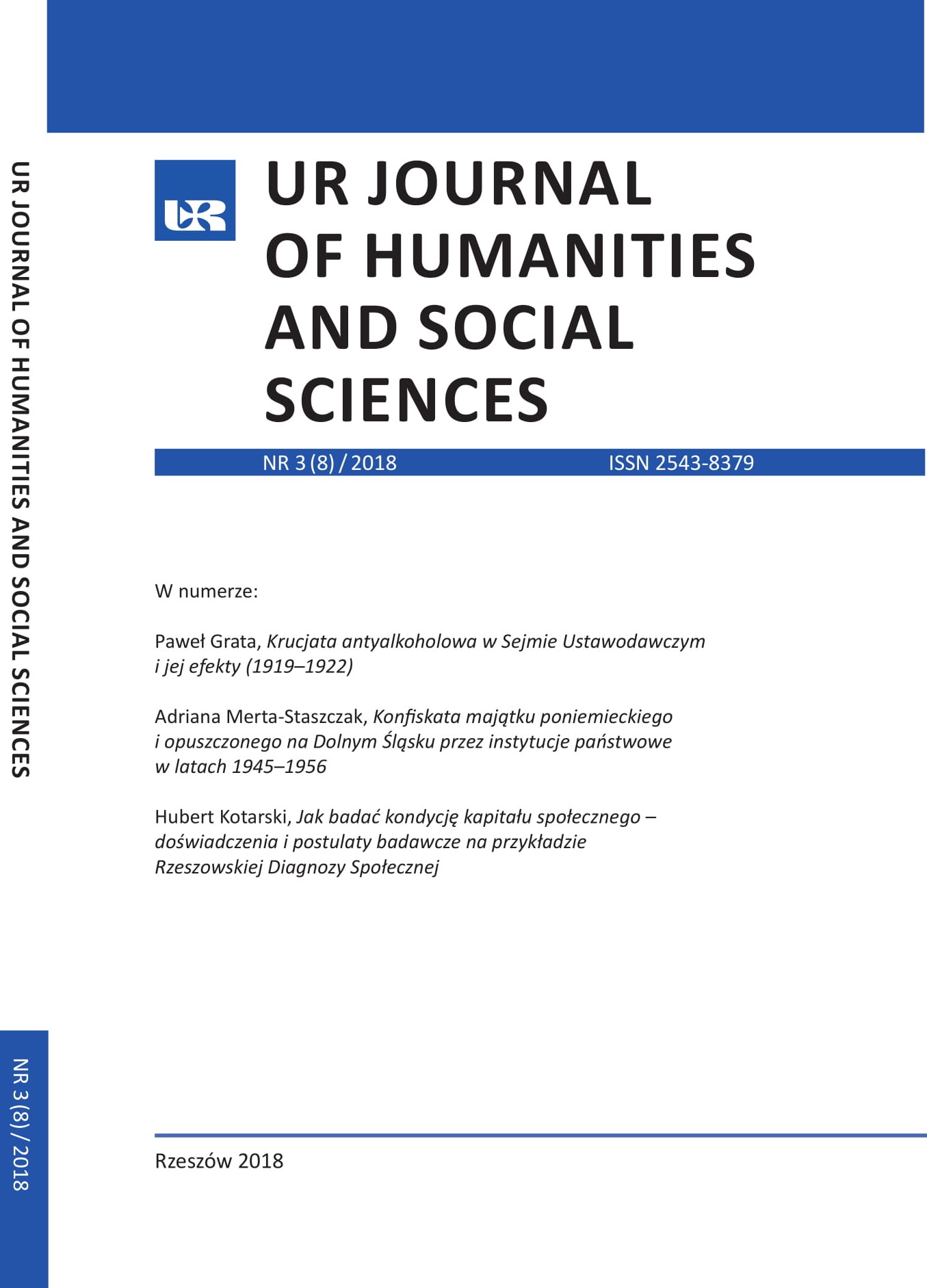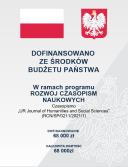How to study the state of social capital? Experimental and research postulates on the basis of “Rzeszowska Diagnoza Społeczna” (Rzeszow Social Diagnosis)
DOI:
https://doi.org/10.15584/johass.2018.3.6Keywords:
social capital, social diagnosis, city, RzeszówAbstract
The interest of sociologists in social capital is primarily related to the search for factors that enable and facilitate the solution of problems of social groups, local communities and entire societies. The concept of social capital is defined in a very different way, so it is not unambiguous. The list of elements that constitute social capital is quite long, and the most important are usually: various interpersonal connections, trust, willingness to reach an agreement, a set of shared values and behaviors, and social networks conditioning joint actions. Social capital is all that determines collective action for the common good in every field: economy, culture, politics. Diagnosis and determining the condition of the level of social capital at the mezzo level, and for that we can recognize the city, allows for the identification of resources that may affect development important from the point of view of the city. The results of empirical research have shown that social capital is a resource that brings specific benefits to individuals and local communities. An important benefit of using the category of social capital in urban research is the possibility of using it in urban policy design to better suit the real needs of residents. This can be achieved through activities in the field of education, labor market and decentralization of local policy. Increased use of local resources for social capital should be the aim of local policy
Downloads
Downloads
Published
How to Cite
Issue
Section
License
Copyright (c) 2018 Wydawnictwo Uniwersytetu Rzeszowskiego

This work is licensed under a Creative Commons Attribution-NonCommercial 4.0 International License.



